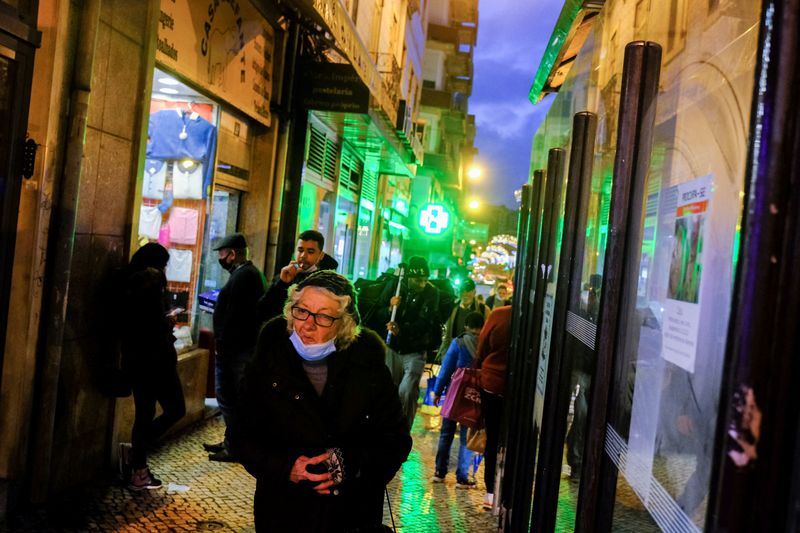By Sergio Goncalves and Andrei Khalip
LISBON (Reuters) -Portugal's economy grew 6.7% in 2022, its strongest rate in 35 years, boosted by domestic demand and booming tourism, but inflation hampered demand in the last quarter in a foretaste of an expected steep slowdown this year.
Gross domestic product (GDP) grew by 0.2% in the final quarter versus the previous three-month period when it expanded by 0.4%, the National Statistics Institute said on Tuesday, noting a "slightly negative" contribution of net exports.
The 2022 growth rate was largely in line with the government's target of 6.5%.
Inflation is close to three-decade highs.
"We can already see that family income is being affected by inflation and the rise in interest rates on mortgage loans and exports of goods are already slowing down," said Paulo Rosa, senior economist at Banco Carregosa, who expects tourism to be "the only component truly supporting Portugal's growth" this year.
He said: "2023 will be a year of strong deceleration and a recession cannot be ruled out if the United States and Germany go into recession."
The government projects expansion to slow to just 1.3% in 2023, with private consumption - which represents two-thirds of GDP - almost stagnating as families struggle with high energy and food prices alongside rising interest rates and slowing exports.

Portugal's GDP grew by 5.5% in 2021 helped by the lifting of COVID-19 restrictions, revitalised private consumption, tourism and exports.
That had a somewhat delayed positive impact in Portugal, allowing it to outgrow most EU countries last year.